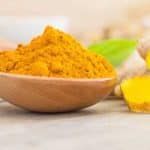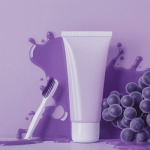Brushing your teeth daily is essential for maintaining oral hygiene and a bright smile. However, many people notice their teeth still appear yellow despite their consistent brushing routine.
If you struggle with this issue, several factors could contribute to your teeth’ yellowing. This blog post will explore the common reasons behind yellow teeth and provide solutions to help restore your pearly whites.
Quick Summary
Teeth may appear yellow despite daily brushing due to factors like staining from food, smoking, or natural enamel thinning. Consider a whitening treatment.
Even If I Brush My Teeth Every Day, Why are They Yellow?
Even if you brush your teeth daily, yellowing can still occur due to various factors beyond just brushing. Here’s a detailed explanation of why this might happen:
Dietary Choices
One of the primary reasons for yellow teeth is the consumption of certain foods and beverages. Items such as coffee, tea, red wine, and dark-colored sauces contain pigments that can stain your teeth over time.
Even though you brush regularly, these stains can be difficult to remove without additional treatments.
Tobacco Use
Smoking or chewing tobacco is a significant contributor to yellow teeth. Tobacco products contain chemicals that can deeply stain the enamel and are challenging to remove with regular brushing alone.
Poor Oral Hygiene
While brushing daily is crucial, using the correct technique and tools is equally important. Using a hard-bristled toothbrush or brushing too aggressively can wear down enamel and make teeth more susceptible to staining. Additionally, not flossing regularly can lead to plaque buildup, which can cause yellowing.
Natural Aging
As you age, the enamel on your teeth naturally wears down, revealing the yellowish dentin underneath. This process is a normal part of aging and can be exacerbated by lifestyle factors such as diet and smoking.
Fluorosis
Fluorosis is a condition caused by excessive fluoride intake during childhood when the teeth are still developing. It can result in white or yellow spots on the teeth. While fluoride benefits dental health, excessive amounts can lead to discoloration.
Genetics
Genetics also play a role in the color of your teeth. Some people naturally have more yellowish or grayish teeth due to their genetic makeup. This inherent color can be more noticeable despite good oral hygiene practices.
Medication Side Effects
Certain medications, such as antibiotics and antihistamines, can cause tooth discoloration as a side effect. Tetracycline antibiotics, for example, can cause staining in children whose teeth are still developing.
Solutions for Yellow Teeth
If you’re dealing with yellow teeth, there are several effective solutions to improve their appearance and restore your smile’s brightness. Here are some options to consider:
Professional Teeth Whitening
Professional teeth whitening treatments may be necessary if your teeth remain yellow despite brushing daily. Dentists offer various whitening options, including in-office treatments and take-home kits, that can effectively remove stains and brighten your smile.
Over-the-Counter Whitening Products
Numerous over-the-counter whitening products are available, such as whitening toothpaste, strips, and gels. These products can help remove surface stains and improve the appearance of your teeth, although they may be less effective than professional treatments.
Good Oral Hygiene Practices
Maintain a proper oral hygiene routine using a soft-bristled toothbrush and fluoride toothpaste. Brush twice a day and floss daily to remove plaque and prevent staining. Regular dental check-ups and cleanings are also essential for maintaining a bright smile.
Dietary Changes
Reduce the intake of foods and beverages that can stain your teeth. If you consume these items, rinse your mouth with water afterward or brush your teeth to minimize staining.
Incorporating crunchy fruits and vegetables, such as apples and carrots, can help naturally clean your teeth and prevent staining.
Quit Tobacco Use
If you smoke or use tobacco products, quitting can significantly improve the color of your teeth. Tobacco stains are stubborn, but avoiding these products can prevent further discoloration and improve oral health.
Consider Dental Bonding or Veneers
Dental bonding or veneers can be effective solutions for more severe discoloration cases. Bonding involves applying a tooth-colored resin to the surface of the teeth, while veneers are thin shells of porcelain or composite material that cover the front of the teeth. Both options can provide a brighter and more uniform appearance.
Can Yellow Teeth Be a Sign of Poor Oral Hygiene Even If I Brush Regularly?
Yellow teeth can sometimes indicate poor oral hygiene, but they can also be caused by several other factors, even if you brush regularly. Understanding these factors helps determine whether your brushing routine needs adjustment or other issues might be at play.
Brushing Technique: Proper brushing technique is crucial. If you brush too gently or use a hard-bristled toothbrush, you might not effectively remove plaque and surface stains.
Additionally, inadequate brushing time (less than two minutes) or inconsistent brushing can lead to plaque buildup, possibly contributing to discoloration.
Plaque and Tartar: Regular brushing helps prevent plaque buildup, but if plaque is not removed, it can harden into tartar.
Tartar is more difficult to remove and can cause teeth to appear yellow. Professional dental cleanings are needed to remove tartar that brushing alone cannot address.
Diet and Lifestyle: Even with good oral hygiene, consuming staining foods and drinks like coffee, tea, red wine, and tobacco can lead to yellow teeth. These substances can penetrate the enamel and cause persistent discoloration.
Natural Aging and Genetics: Enamel naturally wears down with age, revealing the yellowish dentin underneath. Genetics can also affect tooth color, making some teeth more prone to yellowing despite excellent oral care.
Health Conditions and Medications: Certain medical conditions and medications can cause tooth discoloration. Fluorosis, excessive fluoride intake during childhood, and specific antibiotics can lead to stains or discoloration.
Preventing Future Discoloration
To prevent yellow teeth in the future, adopt the following practices:
Maintain Good Oral Hygiene: Brush and floss regularly to keep plaque and stains at bay.
Limit Stain-Causing Foods and Drinks: Reduce consumption of coffee, tea, red wine, and other staining substances.
Avoid Tobacco Products: Avoid smoking or chewing tobacco to prevent staining and maintain oral health.
Visit Your Dentist Regularly: Regular dental health check-ups and cleanings can help address staining issues early and keep your teeth looking their best.
Are Any Underlying Health Issues That Could Cause Yellow Teeth Despite Good Oral Hygiene?
Several underlying health issues can cause yellow teeth even if you maintain good oral hygiene. These issues may be related to dental health, systemic conditions, or certain medications.
Fluorosis: Dental fluorosis is caused by excessive fluoride intake during childhood when teeth are still developing. This condition can lead to white or yellow spots on the teeth. While fluoride benefits dental health, excessive exposure can result in discoloration.
Medications: Certain medications can cause tooth discoloration as a side effect. Tetracycline antibiotics, for example, can lead to yellow or gray stains, especially if taken during childhood when teeth are forming. Some antihistamines and other drugs can also contribute to tooth color changes.
Genetic Factors: Genetic predisposition plays a role in the natural color of your teeth. Some people have genetically yellowish or grayish teeth, which may be more noticeable despite good oral hygiene practices.
Enamel Hypoplasia: This is a condition where the enamel does not form properly, leading to discoloration and weakened teeth. Nutritional deficiencies, illness, or trauma during tooth development can cause it.
Systemic Health Issues: Certain systemic conditions, such as liver disease or kidney issues, can affect tooth color. These conditions may impact the overall health of your teeth and contribute to discoloration.
Conclusion
Yellow teeth, despite daily brushing, can be frustrating, but understanding the underlying causes can help you take the necessary steps to achieve a brighter smile.
Various ways exist to address and prevent tooth discoloration, from dietary changes and good oral hygiene practices to professional whitening treatments and lifestyle adjustments.
Consult your dentist for personalized advice and treatment options to restore your teeth’s natural whiteness and maintain a confident, radiant smile.



